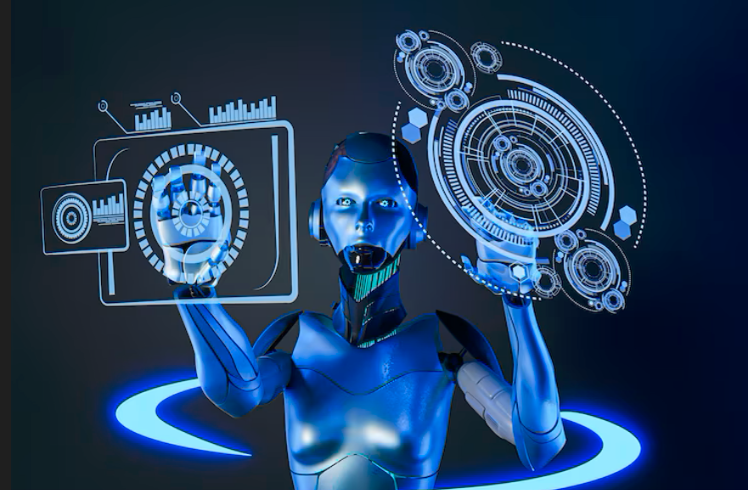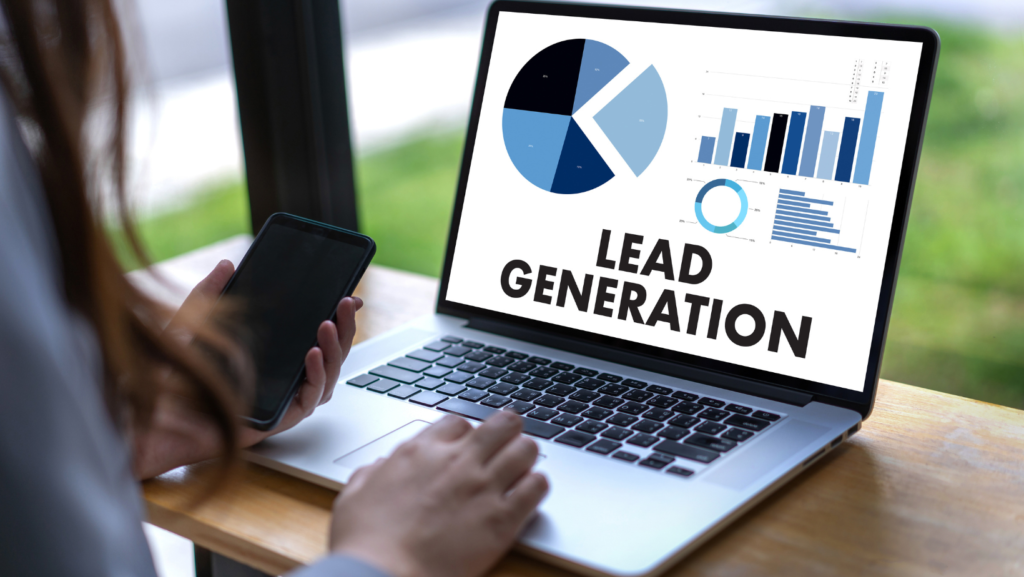Lead generation is the lifeblood of any business. Without a steady stream of potential customers, even the most innovative products and services can fall flat. As businesses strive to attract and convert leads more efficiently, Artificial Intelligence (AI) has emerged as a game-changer. By leveraging AI-powered tools, companies can streamline their lead generation processes, making them not only faster but also more effective. In this article, we’ll explore how lead generation AI tools can revolutionize your lead generation strategy and help you achieve unprecedented success.
What is Lead Generation?
Lead generation is the process of attracting and converting strangers and prospects into someone who has indicated interest in your company’s product or service. Traditionally, this involved methods like cold calling, direct mail, and networking events. While these techniques are still in use, the digital age has introduced more sophisticated and scalable methods. Modern lead generation often relies on digital channels such as social media, email marketing, and search engine optimization (SEO). The lead generation process is crucial for building a sales pipeline that is rich with potential customers who are genuinely interested in what you offer.
The Evolution of Lead Generation
Historically, lead generation was a manual and time-consuming process. Sales teams would spend hours scouring through phone books, attending networking events, and sending out unsolicited emails. The advent of the internet and digital marketing transformed these efforts, making it possible to reach a larger audience more efficiently. Now, with AI, lead generation is undergoing another significant transformation, allowing businesses to target prospects more accurately and at a fraction of the time. The integration of AI-powered tools into the lead generation process marks a significant milestone, enhancing both the efficiency and effectiveness of sales and marketing efforts.
AI in Lead Generation
Artificial Intelligence, with its ability to process and analyze vast amounts of data, offers significant benefits for lead generation. AI tools can help businesses identify potential leads, understand their behavior, and predict their needs. This not only improves the efficiency of the lead generation process but also enhances the quality of the leads generated. AI for lead generation enables businesses to automate repetitive tasks, allowing sales teams to focus on engaging with leads and closing deals. By leveraging AI, companies can ensure they are targeting leads based on data-driven insights, increasing the chances of converting them into customers.
Types of AI Tools for Lead Generation
There are several types of AI tools that can assist in lead generation. These tools range from AI-powered Customer Relationship Management (CRM) systems to chatbots, predictive analytics tools, social media monitoring tools, and email marketing automation tools. Each of these tools offers unique features and benefits that can enhance different aspects of the lead generation process.
AI-Powered CRM Systems
AI-powered CRM systems are at the forefront of lead generation technology. These systems use AI to manage customer interactions, track leads, and predict customer behavior. Popular AI CRM tools include Salesforce Einstein, HubSpot, and Zoho CRM. These tools offer features like lead scoring, personalized communication, and automated follow-ups, making lead management more efficient and effective. By leveraging AI-powered CRM systems, businesses can gain deeper insights into their leads, allowing for more targeted and personalized marketing efforts.
Chatbots and Virtual Assistants
Chatbots and virtual assistants are becoming increasingly popular for customer engagement. These AI tools can interact with potential customers in real-time, answer their queries, and guide them through the sales funnel. Chatbots like Drift, Intercom, and TARS have proven effective in engaging visitors, qualifying leads, and even closing sales. By providing instant responses and personalized interactions, chatbots can significantly enhance the customer experience, making it easier to convert visitors into leads and leads into customers.
Predictive Analytics Tools
Predictive analytics tools use AI to analyze historical data and predict future behavior. In lead generation, these tools can help identify the most promising leads and predict their likelihood of conversion. Tools like Leadspace, EverString, and Infer use predictive analytics to improve lead scoring and targeting, ensuring that sales teams focus their efforts on the most valuable prospects. By leveraging predictive analytics, businesses can make more informed decisions about which leads to pursue, increasing the efficiency and effectiveness of their sales and marketing efforts.
Social Media Monitoring Tools
Social media is a goldmine for lead generation. AI-driven social media monitoring tools can track mentions of your brand, analyze sentiment, and identify potential leads. Tools like Hootsuite, Sprout Social, and Brandwatch leverage AI to monitor social media conversations, providing valuable insights that can be used to engage with potential leads more effectively. By understanding the conversations happening around your brand, you can tailor your marketing efforts to better meet the needs and interests of your target audience, ultimately driving more leads and conversions.
Email Marketing Automation Tools
AI has also revolutionized email marketing. Email marketing automation tools use AI to personalize email content, optimize send times, and analyze campaign performance. Platforms like Mailchimp, Constant Contact, and Sendinblue offer AI-powered features that can enhance your email marketing efforts, making it easier to nurture leads and convert them into customers. By automating email campaigns, businesses can ensure that their messages reach the right people at the right time, increasing the likelihood of engagement and conversion.
Implementing Lead Generation AI Tools in Your Business
Integrating AI tools into your lead generation strategy can seem daunting, but it doesn’t have to be. Start by identifying your lead generation goals and selecting the AI tools that best meet your business needs. Next, ensure you have the necessary data infrastructure in place to support these tools. Training your team on how to use AI tools effectively is also crucial. Finally, be prepared to iterate and optimize your strategy based on the insights gained from AI analytics. By taking a systematic approach to implementing AI tools, you can ensure a smooth transition and maximize the benefits for your business.
Steps to Integrate AI Tools
- Define Your Goals:
Clearly outline what you want to achieve with your lead generation efforts. Are you looking to increase the number of leads, improve lead quality, or enhance customer engagement? - Select the Right Tools:
Based on your goals, choose the AI tools that will best help you achieve them. Consider factors like ease of use, compatibility with existing systems, and cost. - Prepare Your Data:
Ensure you have a robust data infrastructure in place. Clean, organize, and integrate your data to ensure your AI tools can access and process it effectively. - Train Your Team:
Provide comprehensive training for your team on how to use the new AI tools. This will ensure they can leverage these tools to their full potential. - Monitor and Optimize:
Continuously monitor the performance of your AI tools and make adjustments as needed. Use the insights gained from AI analytics to refine your lead generation strategies.
Measuring Success in AI-Driven Lead Generation
To measure the success of your AI-driven lead generation efforts, track key performance indicators (KPIs) such as lead quality, conversion rates, and customer acquisition costs. Use analytics tools to monitor these metrics and adjust your strategy as needed. Regularly reviewing and interpreting your data will help you understand what’s working and what isn’t, allowing you to continuously improve your lead generation process. By focusing on the right KPIs and using data-driven insights, you can ensure that your AI-powered lead generation efforts are delivering the desired results.
Key Performance Indicators (KPIs)
- Lead Quality:
Measure the quality of the leads generated by assessing their relevance and potential to convert. - Conversion Rates:
Track the percentage of leads that turn into paying customers. This is a critical metric for evaluating the effectiveness of your lead generation strategies. - Customer Acquisition Cost (CAC):
Calculate the cost of acquiring each customer. Lowering CAC while maintaining or increasing lead quality is a key indicator of a successful lead generation strategy. - Engagement Metrics:
Monitor how leads interact with your content, such as email open rates, click-through rates, and social media engagement. - Sales Cycle Length:
Measure the time it takes for leads to move through your sales funnel and become customers. A shorter sales cycle often indicates more efficient lead generation and nurturing processes.
Future Trends in AI and Lead Generation
The future of AI in lead generation looks promising, with several emerging trends on the horizon. As AI technology continues to evolve, we can expect more advanced predictive analytics, greater personalization, and increased automation. Businesses that stay ahead of these trends and adapt their strategies accordingly will be well-positioned for success in the competitive landscape. By staying informed about the latest developments in AI and lead generation, businesses can ensure that they are prepared to take advantage of new opportunities as they arise.
Emerging Technologies
- Enhanced Predictive Analytics:
Future advancements in predictive analytics will provide even more accurate and actionable insights, allowing businesses to target leads with greater precision. - Hyper-Personalization:
AI will enable deeper levels of personalization, tailoring marketing messages and experiences to individual leads based on their preferences and behaviors. - Voice Search and AI Assistants:
As voice search becomes more prevalent, AI-powered voice assistants will play a larger role in lead generation, helping businesses capture and engage leads through voice interactions. - AI-Driven Content Creation:
AI tools will assist in creating personalized content at scale, ensuring that leads receive relevant and engaging information throughout their journey. - Integration with IoT:
The Internet of Things (IoT) will provide additional data points that AI can analyze to generate more comprehensive lead profiles and insights.
Conclusion
AI tools offer a powerful way to enhance your lead generation efforts. By leveraging AI-powered CRM systems, chatbots, predictive analytics, social media monitoring, and email marketing automation, you can streamline your processes, improve lead quality, and increase conversion rates. As AI technology continues to advance, the potential for effortless lead generation will only grow, making it an essential component of any successful business strategy. By embracing AI tools, businesses can ensure that they are well-equipped to meet the demands of the modern marketplace and achieve their lead generation goals.
FAQs
How can small businesses benefit from AI in lead generation?
Small businesses can benefit from AI by automating repetitive tasks, improving lead targeting, and enhancing customer engagement, all of which can lead to increased efficiency and growth. AI tools can also help small businesses compete with larger companies by providing them with advanced capabilities that were previously out of reach.
Are AI tools expensive to implement?
The cost of AI tools varies, but many affordable options are available. Additionally, the return on investment from improved lead generation can often justify the initial expense. By carefully selecting the right AI tools and integrating them effectively, businesses can maximize their investment and achieve significant benefits.
What is the most effective AI tool for lead generation?
The effectiveness of AI tools depends on your specific needs and goals. However, AI-powered CRM systems and chatbots are generally considered highly effective for most businesses. By using these tools in combination with other AI-powered solutions, businesses can create a comprehensive lead generation strategy that addresses their unique challenges and opportunities.
How do AI tools ensure data privacy?
AI tools are designed with robust security measures to protect data privacy. It’s essential to choose reputable providers and comply with relevant data protection regulations. By implementing best practices for data security and privacy, businesses can ensure that their AI-powered lead generation efforts are both effective and compliant with legal requirements.
Can AI tools replace human sales teams?
AI tools can significantly enhance the capabilities of sales teams but are not likely to replace them entirely. Human expertise and personal touch remain crucial in building strong customer relationships. By using AI tools to automate repetitive tasks and provide data-driven insights, sales teams can focus on what they do best: engaging with leads and closing deals.










